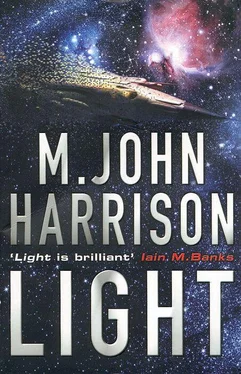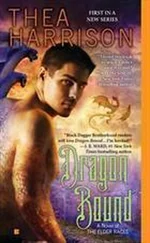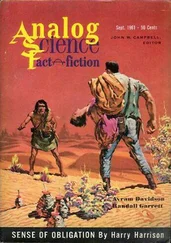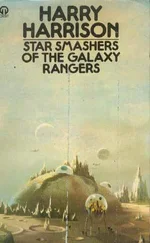'After she left, our father stood on the kitten,' he told Annie next morning. 'It died. He didn't mean that to happen. But that was when I made up my mind I'd leave too.'
She smiled. 'Travel the galaxy,' she said.
'Fly the ships,' he said.
'Have all the pussy you could find.'
'That and more,' Ed said with a grin.
He sat for a minute after Annie had gone to work, thinking:
That was the black kitten I remembered, then: but there was more to it than that. Before the sister went away. He thought he saw a river, a woman's face. Fingers trailed in water. A voice saying delightedly but far off:
'Aren't we lucky? Aren't we lucky to have this?'
We were all together then, Ed thought.
Ed did his first show in a tuxedo.
Thereafter, for obvious reasons, he would favour a cheap blue boiler suit made of easily washable fabrics: but the first time he was resplendent. They built a cramped little stage for him, between 'Brian Tate and Michael Kearney Looking Into a Monitor in 1999' and 'Toyota Previa with Clapham Schoolchildren, 2002', lighting it with racks of antique coloured spots and some careful holographic effects designed to maintain the theme. In the centre of the stage Ed had the bare wooden chair on which he would sit while he used the fishtank; also a microphone as old as the lights.
'It won't actually be connected to anything,' Harryette said. 'We'll handle the sound in the usual way.'
The hermaphrodite seemed nervous. She had fussed around all afternoon. She specialised in stage management, and was always describing how she had worked her way up to it from being an ordinary stagehand. It was Harryette who had insisted on the tuxedo. 'We want you to seem commanding,' she said. She was proud of her ideas. Privately, Ed thought they bordered on the fatuous. With her shaved head, live tattoos and thatch of reddish armpit hair, he thought she was the least appealing of Sandra Shen's manifestations. He kept wanting to say, 'Look, you're a shadow operator, you could run on anything. So why this?' but he couldn't find the right moment. Also he wasn't sure how an algorithm would take that sort of criticism. Meanwhile he had to listen to her explain, as she indicated the tableaux on each side of the tiny stage:
'We site ourselves on the cusp like this to exploit suggestions of impermanence and perpetual change.'
'I can see we'd want to do that.' Ed said.
He didn't see why they had to have the hologram backdrop of the Kefahuchi Tract, shimmering away behind the stage as if projected on a satin curtain. But when he asked Harryette about it, she changed the subject immediately, morphing into Sandra Shen and advising him: 'What you've got to recognise, Ed, is that they want you dead. All prophecy is a sending-on-before. The audience need you to be dead for them.'
Ed stared at her.
On the night, he wasn't sure what the audience wanted from him. They filed into the performance space in a kind of rustling hush, a broad sample of New Venusport life. There were corporates from the enclaves, dressed in careful imitation of the tableaux in the offstage shadows; geeks and cultivars from Pierpoint Street; little perfect port prostitutes smelling of vanilla and honey; rickshaw girls, tank addicts, eight-year-old gun punks and their accountants. There were quite a few New Men with their pliable-looking, etiolated limbs and inappropriate facial expressions. They were quieter than a circus audience ought to be, they had bought less food and drink than Ed had expected. They were ominously attentive. They didn't look as if they wanted him dead. He sat on the wooden chair in his tuxedo in the coloured spotlight and stared out at them. He felt hot and a bit sick. His clothes felt too tight.
'Ah,' he said.
He coughed.
'Ladies and gentlemen,' he said. Rows of white faces stared at him. 'The future. What is it?'
He couldn't think of anything to add to that, so he bent forward, picked up the fishtank, which had been placed on the floor between his feet, and set it on his lap. Ed's duty was to see. It was to speak. He had no idea if prophecy was entertainment or a service industry. Madam Shen had not been clear on that.
'Why don't I get my face in this?' he suggested.
Silver eels streamed out of him, something leaking out of his life, and Ed leaking after it like a current of warmer water in a cold sea. That night was no different to any other experience in the fishtank, except perhaps for an added, gluey distance to everything he saw. Everything in there was an effort that night. He woke up on the spaceport concrete perhaps an hour later. A salt night wind was blowing. He felt sick and cold. Annie Glyph was kneeling by him. He had the feeling that she had been there for some time. That she was prepared to wait however long it took. He coughed and heaved. She wiped his mouth.
'There,' she said.
'Jesus,' said Ed. 'Hey,' he said. 'How was I?'
'It was a short show. As soon as you put the fishtank on your head, you had some sort of spasm. That was what it looked like.' Annie smiled. 'They weren't convinced,' she went on, 'until you got out of the chair.' He had got out of the chair, she told him, to stand facing the audience for maybe a minute in the shifting light, during which time he trembled and slowly pissed himself. 'It was a real twink moment, Ed. I was proud of you.' After that some muffled sounds came out of the smoky-looking substance in the tank. He shrieked suddenly and began trying to wrestle it off his head. Then he passed out and fell his length into the front row of the audience. 'They weren't happy, and we had some problems with them after that. You know, they were corporates who had paid for special seats and you were sick on their good clothes. Madam Shen talked to them, but they seemed disappointed. We had to drag you out the back way.'
'I don't remember that.'
'It didn't look much. You spoilt your tuxedo, rolling about in your own piss.'
'But did I say anything?'
'Oh, you told the future. You did that all right.'
'What'd I say?'
'You talked about war. You said things no one wanted to hear. Blue babies floating out of wrecked ships in empty space. Frozen babies in space, Ed.' She shivered. 'No one wants to hear that kind of thing.'
'There isn't any war,' Ed pointed out. 'Not yet.'
'But there will be, Ed. That's what you said: "War!"'
This meant nothing to Ed. After he had passed the part with the eels, instead of seeing his childhood in the house with the grey roof, he had watched himself step off his first rocket ship-a tubby little dynaflow freighter called the Kino Chicken- on to the parched soil of his first alien planet, with a broad sixteen-year-old leer on his face. The monkey was on his back. He was grooving on concepts of infinite travel and empty space. Always more. Always more after that. He stood at the top of the cargo ramp and shouted, 'Alien planet!' Never regret anything, he promised himself there and then. Never go back. Never see them again, mothers, fathers, sisters who abandon you. It was no distance at all from that position to the death of Dany LeFebre which had hurt him so bad. It all led so inevitably from the Kino Chicken, through hyperdip, to the twink-tank.
He told Annie Glyph this, as they walked back across the concrete to her room.
'I had another name then,' he said.
Suddenly he thought he was going to be sick again. He crouched down and put his head between his knees. He cleared his throat. Annie touched his shoulder. After a bit he felt better, and was able to look up at her. 'I let those people down tonight,' he said. She made him see, the way she always did, that massive calm patience of hers. He threw himself against it because it was what he had.
'If I'm predicting the future,' he said desperately, 'why do I always see the past?'
Читать дальше












